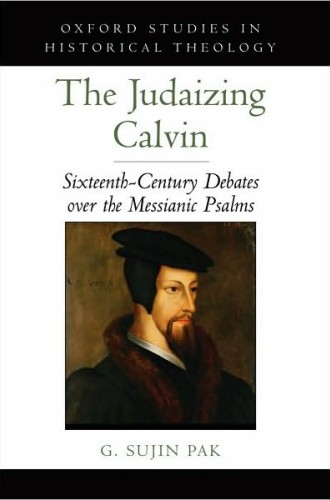A review of The Judaizing Calvin
The accepted baseline for study of the Psalms is genre analysis. Beyond that baseline, however, several interpretive options are available. Most often critical scholars seek to locate a particular Psalm in the life setting of ancient Israel, very often in a liturgical context. But two other alternatives are popularly practiced. On the one hand, "canonical interpretation" of the Psalter seeks to show how the various Psalms in the book are strategically situated, so that the shape of the Psalter in its several subsections is itself a theological, interpretive statement. On the other hand, there is a long tradition of Christian reading of the Psalms that takes Christ as their speaker or subject.
The Judaizing Calvin is a historical investigation of that latter practice among the 16th-century Reformers. Sujin Pak sees the Reformers as situated in a continuing line of christological interpretation that runs from Augustine to Bonhoeffer—an approach recently championed by Jason Byassee in Praise Seeking Understanding: Reading the Psalms with Augustine.
Pak's book is the outcome of his Duke Divinity School dissertation, edited by David Steinmetz. It bears some of the marks of a dissertation: it is dense and its rhetoric is fairly flat. It is not an exciting read, but it is a serious and important read because it plunges us into the difficult question of how the church is to read the Old Testament. The book is organized around the question of how "Messianic Psalms" were read in the Reformation. The focus is on Psalms 2, 8, 16, 22, 45, 72, 110 and 118, a group that roughly corresponds to what critical scholars now term "royal Psalms"—that is, they are Psalms that speak of the king in ancient Israel. The question for interpretation is, "Who is the king?" Critical study takes him to be a Davidic king in Jerusalem; christological readings pass over such historical reference and read king as "Christ."






